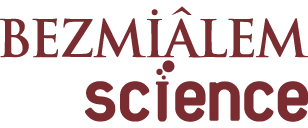ÖZET
Amaç:
Bu çalışma mide kanseri (MK) nedeniyle küratif D2 lenf nodu diseksiyonu yapılan hastalarda sarkopeninin erken postoperatif komplikasyonlarla olan ilişkisini araştırmayı amaçlamaktadır.
Yöntemler:
MK nedeniyle gastrektomi ve D2 lenf nodu diseksiyonu yapılan hastalar retrospektif olarak incelendi. Sarkopeni tanısı ameliyat öncesi evrelemede bilgisayarlı tomografi (BT) ile kondu. Ameliyat sonrası komplikasyonlar Clavien-Dindo (CD) sınıflamasına göre belirlendi.
Bulgular:
Sarkopeni, çalışmaya katılan 145 hastanın 59’unda (%40,7) görüldü. Sarkopenik hastalarda ameliyat sonrası komplikasyon oranı sarkopenik olmayanlara göre daha yüksekti. Cerrahi ve medikal komplikasyonlar sarkopenik hastalarda daha yüksekti. Ciddi cerrahi komplikasyonlar (CD evre 3 ve üzeri) sarkopeni grubunda anlamlı olarak daha yüksekti. Sarkopeni (4,63, %95 güven aralığı, 1,76-12,18; p=0,002) postoperatif komplikasyonlar için prognostik bir risk faktörüdür.
Sonuç:
Sarkopeni birçok kanser türünde erken postoperatif komplikasyonlarla ilişkilidir. Bu çalışma, mide kanseri cerrahisinde sarkopeninin D2 lenf nodu diseksiyonu sonrası komplikasyonlarla ilişkili olduğunu göstermiştir. Hastaların ameliyat öncesi klinik evrelemesinde BT kullanımı ve gerekli önlemlerin alınması ameliyat sonrası komplikasyonların ele alınmasını kolaylaştırmaktadır.



